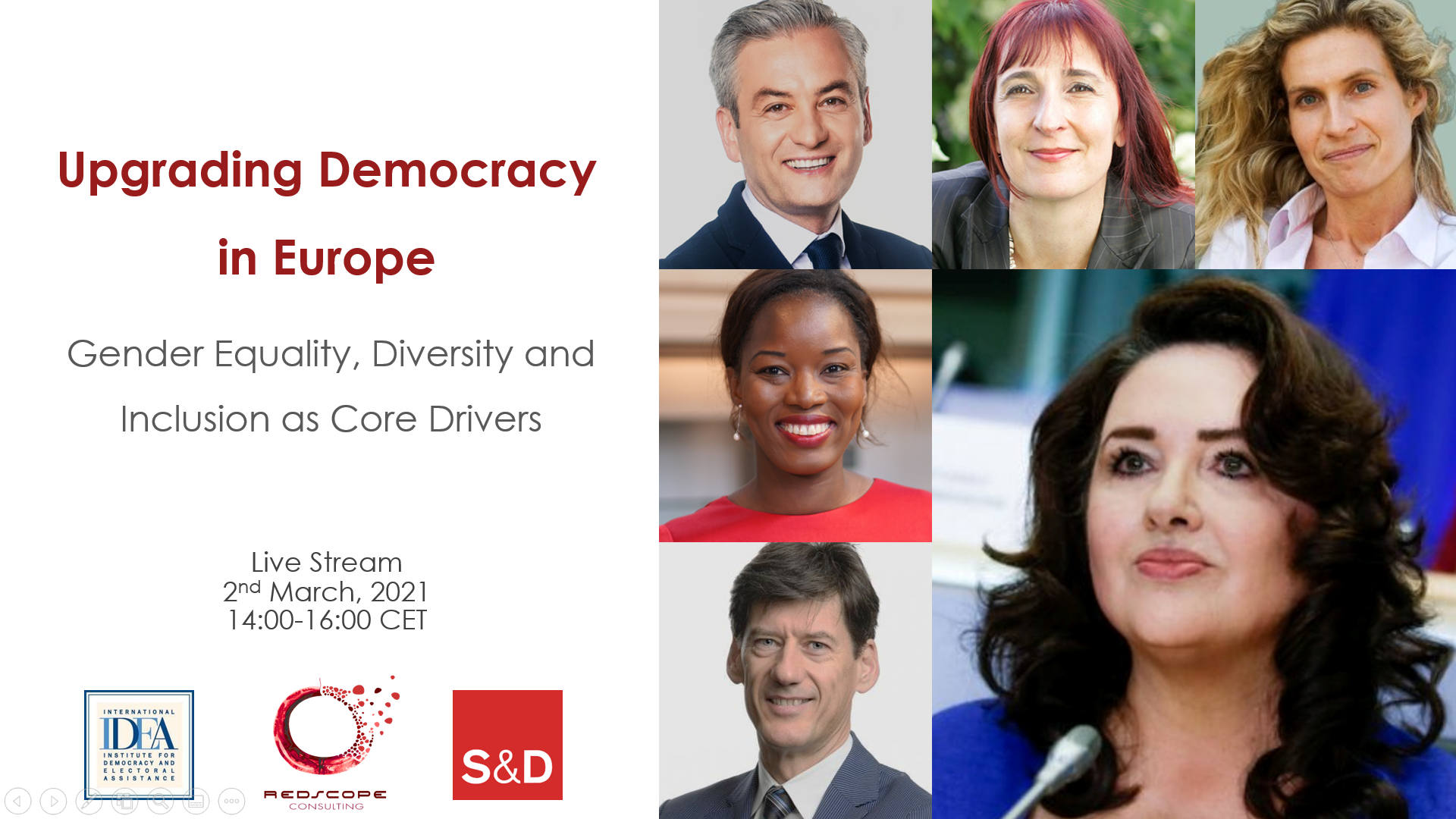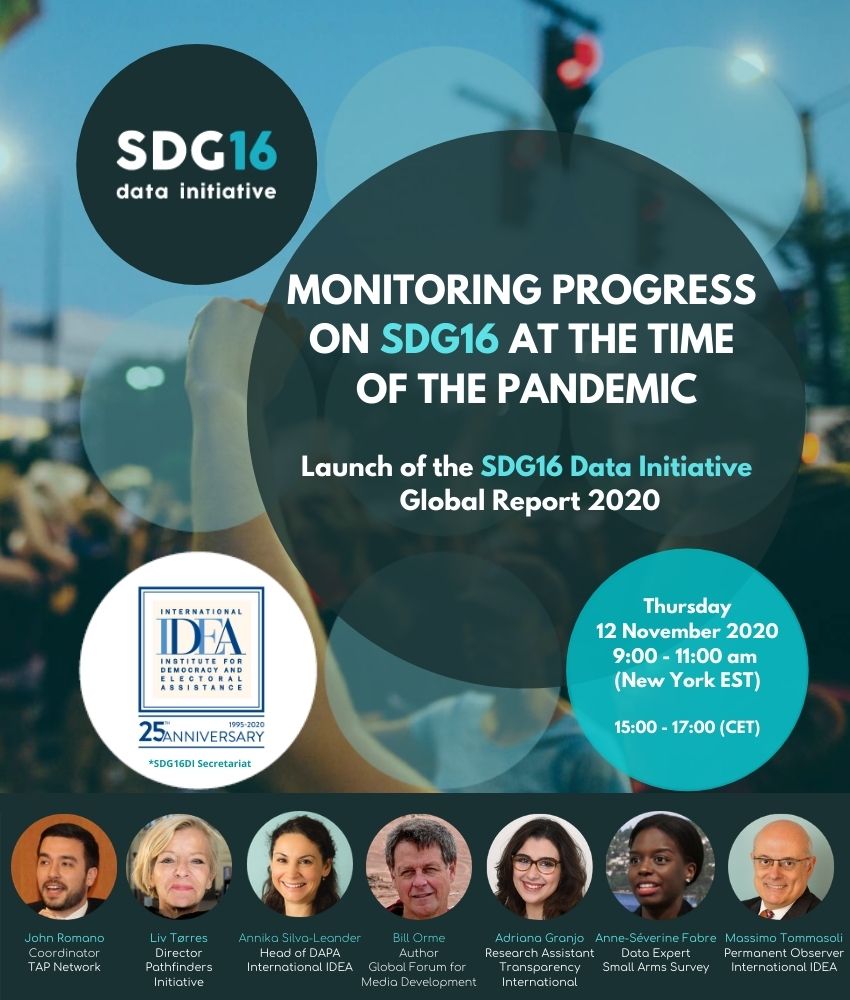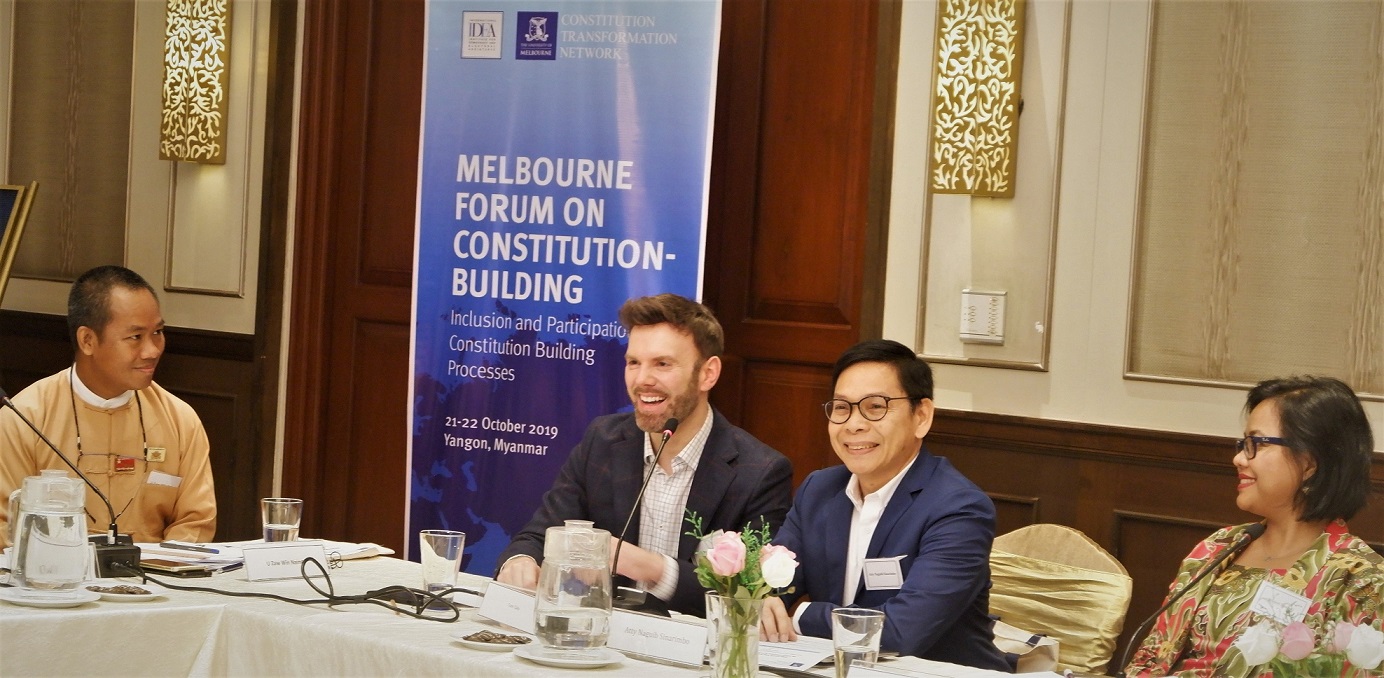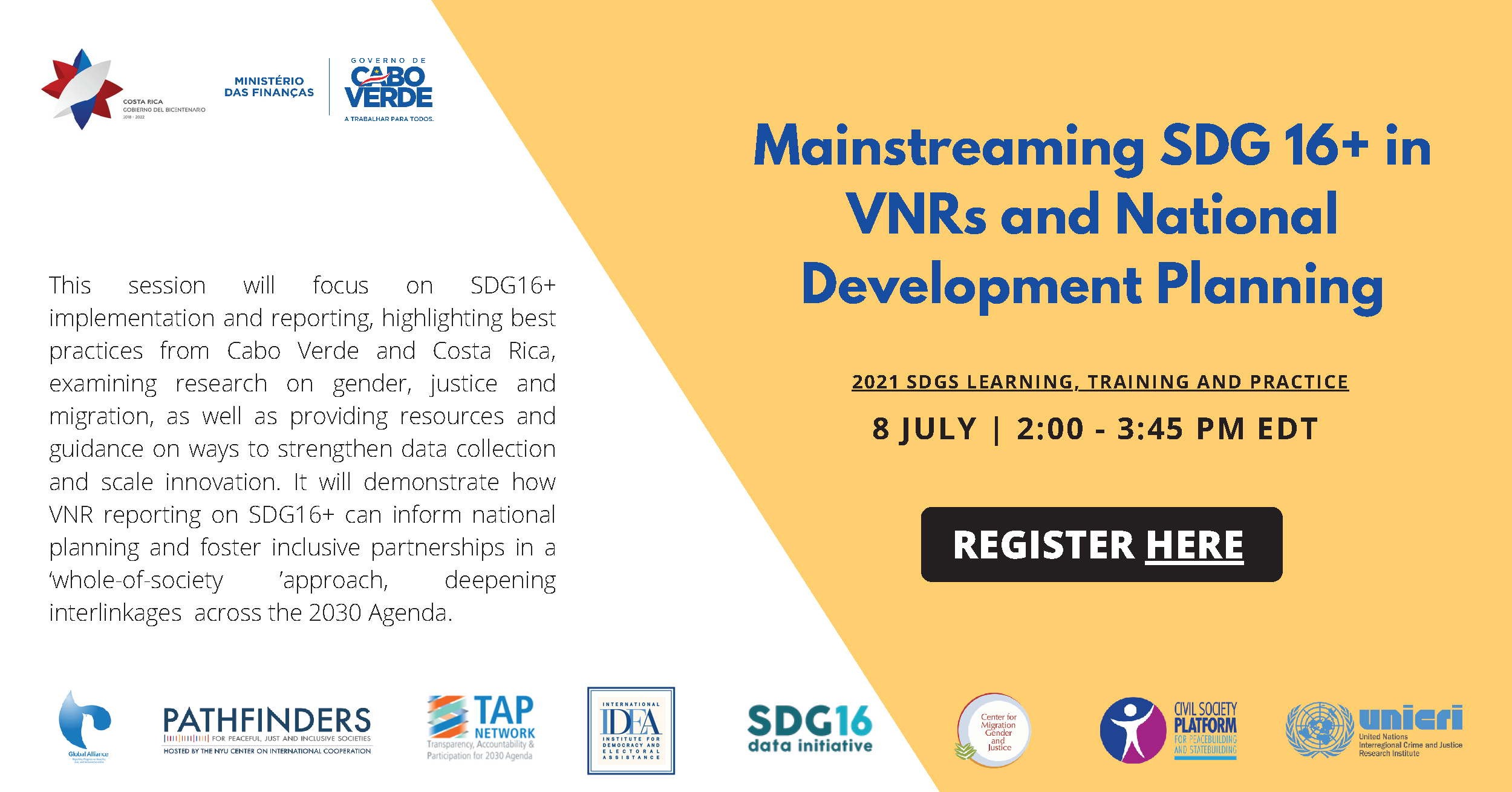Examining 25 Years of Constitution-Making: Gains, Gaps and Implications for Gender Equality

In light of the 25th Anniversary of the Beijing Declaration and Platform for Action, and under the framework of the Sustainable Development Goals, the event will explore 25 years of women’s representation and participation within national constitution building processes, and examine broader developments and challenges related to gendered constitutional design choices.
Constitutions are the most authoritative expressions of States’ systems of governance and accountability and therefore can serve as both potential opportunities and threats to the advancement of gender equality. The language of constitutions, their content, and the processes through which they are built or reformed, serve as important legal, political and symbolic indicators of the priorities and commitments of governments. Since the 1980s, constitutions have evolved considerably from general articulations of institutional frameworks and policy intent to more normative and transformational; in some instances, this includes a trend toward greater gender-specificity. Africa, Asia and the Americas account for the majority of identifiable gender-related constitutional reforms across this timeframe.
While constitutional reforms can take place as part of a regular political process, the most significant processes—often involving the rewriting of a constitution—have frequently taken place in a climate of substantial political change. In this context, 44 sub-Saharan constitutions have been rewritten since 1995 or are in the process of being rewritten.
An analysis of UN Women’s constitutional database demonstrates commitment to a number of areas important for women’s rights and gender equality. Most constitutions include general provisions on equality and non-discrimination, and many have additional gender equality provisions related to, for example, protection from violence, access to education or political quotas. Some constitutional reform processes have also been accompanied by a quest for specific changes in language. The constitutions of Ecuador and South Africa represent promising examples of constitutional commitment to substantive equality: The former makes express reference to substantive equality while the latter adopts a broader range of grounds of discrimination (e.g., pregnancy, marital status, sex, gender and sexual orientation). The deliberate use of pronouns (he and she, man and woman) in constitutions such as those of Ethiopia, Morocco and Tunisia is “a subtle acknowledgement that constitutional language functions to reorder and reconfigure society”.
The availability of provisions on constitutional courts and remedies in 177 constitutions strengthens the ground for constitutional litigation. The strong will and tenacity of civil society groups to actively engage in public interest litigation has in no small way contributed to the reform of gender discriminatory laws. The case of Unity Dow v. Attorney General of Botswana led to the repeal of the Citizenship Act, which had denied women the right to pass their nationality on to their foreign husbands and children of the marriage. The Mmusi case—in the same country—declared the Ngwaketse customary law unconstitutional, making it possible for women to claim equal rights as men to inherit property.
When combined, these developments reflect important progress toward advancing women’s rights and gender equality in State constitutions. Yet significant variation remains in terms of how respective state obligations are articulated, justiciability, and enforcement mechanisms. In addition, while the role of women as decision-makers in constitution-building processes has also expanded since the 1980s, their participation still falls short of parity with men.
Twenty-five years of constitution-making is central to the review to be undertaken by the Commission on the Status of Women. This is because the wide and rapid ratification of CEDAW; the proclamation of International Women’s Year in 1975 and the subsequent world conferences on women of 1975, 1980, 1985 and 1995 and relentless civil society activism since the 1970s have contributed to the evolution of constitutions.
In post-conflict countries, constitutional reforms have often formed part of a three-pronged political reform process that includes peace agreements and electoral reforms. Post-conflict transitions created “political openings” for women’s groups to make demands for change; and “major disruptions” in gender relations permeated through countries of political transition as women occupied traditionally male-dominated roles as breadwinners and leaders during times of community and national crisis. These shifts laid the ground for women’s groups to make far-reaching gender equality demands as part of the constitutional reform process, while also highlighting issues of intersectionality and diversity in perspectives that complicate efforts to identify and address women’s strategic constitutional interests.
Gender equality advocates have often seized the opportunity to influence constitutional design from different locations, including women’s movements, gender machineries, constitutional review bodies, parliamentary gender caucuses, law reform commissions, the UN System, regional bodies and other development actors. Strategic alliances between these actors as part of a relatively open, democratic and transparent process have been crucial to placing and maintaining gender equality on the constitution-making agenda. Some of the strategies that women’s organizations have used to press their demands have included alliance-building across party lines, exploiting strategic entry points and engaging male leaders.
The event will explore all these topics by bring together an extraordinary group of women constitution-makers from around the world as well as international constitutional advisors and leaders in the fields of comparative constitutionalism and gender and politics.



